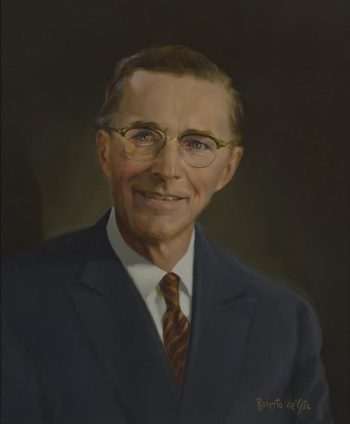Dr. Baldur Rosmund Stefansson
- Canadian Agricultural Hall of Fame
- Inductees
- Dr. Baldur Rosmund Stefansson

- Inducted: 2002
- Residing Province: Manitoba
- Gallery Location: 187
Dr. Baldur Rosmund Stefansson
- (1917
- -
- 2002)
Baldur Rosmund Stefansson, often referred to as the Father of Canola, recognized the potential of rapeseed as an edible oilseed crop for temperate climates early in his remarkable, lifetime career as an oilseed plant breeder at the University of Manitoba. However, the future of the crop was threatened when it was determined that high erucic acid content in its oil was a probable health risk in humans. It was already an industrial oilseed crop grown on limited acreage.
Enlisting collaboration of others from several fields, Baldur Stefansson delved into further study of rapeseed, measuring, assessing and understanding erucic acid in the crop. After surveying 4000 lines accessed from many places, Dr. Stefansson found a rapeseed variety with wide variability in erucic acid content. He and Agriculture Canada colleague Keith Downey manipulated erucic acid in rapeseed oil, including its elimination through breeding new varieties. Cultivars with low erucic acid replaced millions of acres of regular rapeseed.
After further work to elaborate on glucosinolates, another anti-nutritional factor, Drs. Stefansson and Downey found breeding could improve rapeseed meal nutritionally, by virtually eliminating that factor too, producing cultivars low in both erucic acid and glucosinolates.
Baldur Stefansson is credited with producing the first “double zero” variety, Tower, one low in both erucic acid and glucosinolates. Rapeseed with the significant improvements in both oil and meal quality was assigned the new term “canola,” a word combining Canada and oil. Canola oil is recognized as one of the world’s healthiest vegetable oils and the crop from which it comes has developed as the world’s second most important and fastest expanding oilseed crop.
Dr. Stefansson also developed cultivars of the rapeseed crop for specialized uses, such as the world’s first low linolenic acid canola variety and high erucic acid rapeseed cultivars for special industrial applications. Baldur Stefansson released seven cultivars of Rapeseed, two cultivars of Soybeans and one cultivar of Turnip Rape.
Baldur belonged to many professional organizations and produced many publications including chapters in books and articles in conference proceedings.
Among the many awards bestowed on Baldur Stefansson for his contributions to Canadian agriculture are: the Queen’s Jubilee Medal, Order of Manitoba and Officer of the Order of Canada.
Dr. Baldur Stefansson has earned his place in the Canadian Agricultural Hall of Fame.
Baldur Rosmund Stefansson, souvent désigné comme le père du canola, a reconnu le potentiel du colza comme
culture d’oléagineux comestibles pour les climats tempérés dès le début de sa remarquable carrière comme
sélectionneur de plantes oléagineuses à l’Université du Manitoba. Cependant, l’avenir de cette culture a été menacé
quand on détermina que la teneur en acide érucique dans son huile était un risque probable pour la santé chez les
humains. C’était déjà un oléagineux industriel cultivé sur une certaine superficie.
Avec la collaboration de spécialistes de plusieurs domaines, Baldur Stefansson a fait une étude plus approfondie du
colza, afin de mesurer, d’évaluer et de comprendre l’acide érucique dans la culture. Après avoir examiné 4 000
lignées accessibles provenant de nombreux endroits, le Dr Stefansson a trouvé une variété de colza avec une grande
variabilité de la teneur en acide érucique. Avec un collègue d’Agriculture Canada, Keith Downey, il a manipulé l’acide
érucique dans l’huile de colza, y compris son élimination par la sélection de nouvelles variétés. Les cultivars à faible
teneur en acide érucique ont remplacé des millions d’acres de colza régulier.
Par la suite, d’autres travaux sur les glucosinolates, un autre facteur antinutritionnel, les docteurs Stefansson et
Downey ont trouvé que les croisements pourraient améliorer le tourteau de colza sur le plan nutritionnel, en éliminant
presque complètement ce facteur et en produisant des cultivars à faible teneur tant en acide érucique fois qu’en
glucosinolates.
Baldur Stefansson est crédité pour avoir produit la variété de colza “double zéro”, le Tower, avec à la fois, faible
teneur en acide érucique et en glucosinolates. Le colza, avec des améliorations significatives huile et en qualité de
tourteau a été désigné sous le nom de «canola», un mot combinant Canada et huile. L’huile de canola est reconnue
comme l’une des huiles végétales la plus saine du monde et sa culture est devenue la deuxième plus importante
culture d’oléagineuse du monde et la plus rapide en expansion.
Dr Stefansson a également développé des cultivars de colza pour des utilisations spécialisées, telles que la première
variété de canola à faible teneur en acide linolénique du monde et des cultivars de colza en acide érucique élevé pour
des applications industrielles spécialisées. Baldur Stefansson a créé sept cultivars de colza, deux cultivars de soja et
un cultivar de navet.
Baldur a été membre de nombreuses organisations professionnelles et a produit de nombreuses publications, y
compris des chapitres dans des livres et des articles dans des notes de conférence.
Parmi les nombreux prix décernés à Baldur Stefansson pour ses contributions à l’agriculture canadienne, notons: la
Médaille du Jubilé de la Reine, l’Ordre du Manitoba et Officier de l’Ordre du Canada.
Dr Baldur Stefansson a gagné sa place au Temple canadien de la renommée agricole.
- Canola Council of Canada


